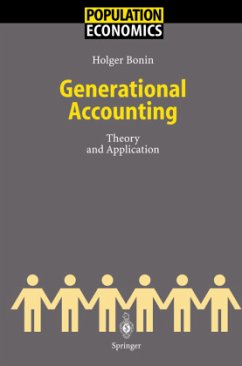
Pension Reform in Six Countries
What Can We Learn From Each Other?
Herausgegeben: Börsch-Supan, Axel H.; Miegel, Meinhard

PAYBACK Punkte
19 °P sammeln!
AxeI Borsch-Supan and Meinhard Miegel The provision of retirement income is a dynamic system that needs to be adapted constantly to the ever changing economic and societal environment. Sometimes, incremental adaptations suffice; sometimes, however, larger reform steps are necessary. We see this evolutionary process both through history and across countries. Over and again societies are confronted with new challenges, not the least with respect to old age social security. At this juncture of history, almost all industrialized countries face rapid population aging and need. to adapt their pensio...
AxeI Borsch-Supan and Meinhard Miegel The provision of retirement income is a dynamic system that needs to be adapted constantly to the ever changing economic and societal environment. Sometimes, incremental adaptations suffice; sometimes, however, larger reform steps are necessary. We see this evolutionary process both through history and across countries. Over and again societies are confronted with new challenges, not the least with respect to old age social security. At this juncture of history, almost all industrialized countries face rapid population aging and need. to adapt their pension systems to this historically unprecedented demographic change. The six countries in this study (Chile, Germany, Great Britain, the Netherlands, Switzerland, and the United States) have responded very differently to this new challenge. This is the point of departure for this book. Why did the countries respond so differently? What can we learn from each other? It is not the point of this book to provide a universally optimal solution to the pension problems caused by population aging. The six countries are simply too different in terms of their demographic and cultural, and in particular in terms of their historical and economic backgrounds. However, since national discussions tend to be surprisingly narrowly focussed even in times of globalization, there is much to learn by looking over the neighbor' s fence. And since some countries have reformed earlier than others, we even have the benefit of quite a few trials and errors in one country from which all other countries can learn.












